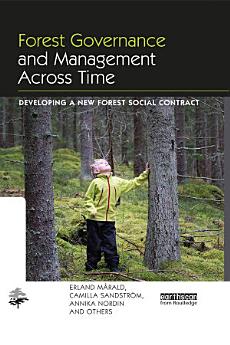

The influence of the past, and of the future on current-time tradeoffs in the forest arena are particularly relevant given the long-term successions in forest landscapes and the hundred years’ rotations in forestry. Historically established path dependencies and conflicts determine our present situation and delimit what is possible to achieve. Similarly, future trends and desires have a large influence on decision making. Nevertheless, decisions about forest governance and management are always made in the present – in the present-time appraisal of the developed situation, future alternatives and in negotiation between different perspectives, interests, and actors. This book explores historic and future outlooks as well as current tradeoffs and methods in forest governance and management. It emphasizes the generality and complexity with empirical data from Sweden and internationally. It first investigates, from a historical perspective, how previous forest policies and discourses have influenced current forest governance and management. Second, it considers methods to explore alternative forest futures and how the results from such investigations may influence the present. Third, it examines current methods of balancing tradeoffs in decision-making among ecosystem services. Based on the findings the authors develop an integrated approach – Reflexive Forestry – to support exchange of knowledge and understandings to enable capacity building and the establishment of common ground. Such societal agreements, or what the authors elaborate as forest social contracts, are sets of relational commitment between involved actors that may generate mutual action and a common directionality to meet contemporary challenges.
Idioma
Inglés
Código ISBN
9781317445913
Editorial
routledge
Año de publicación
2017